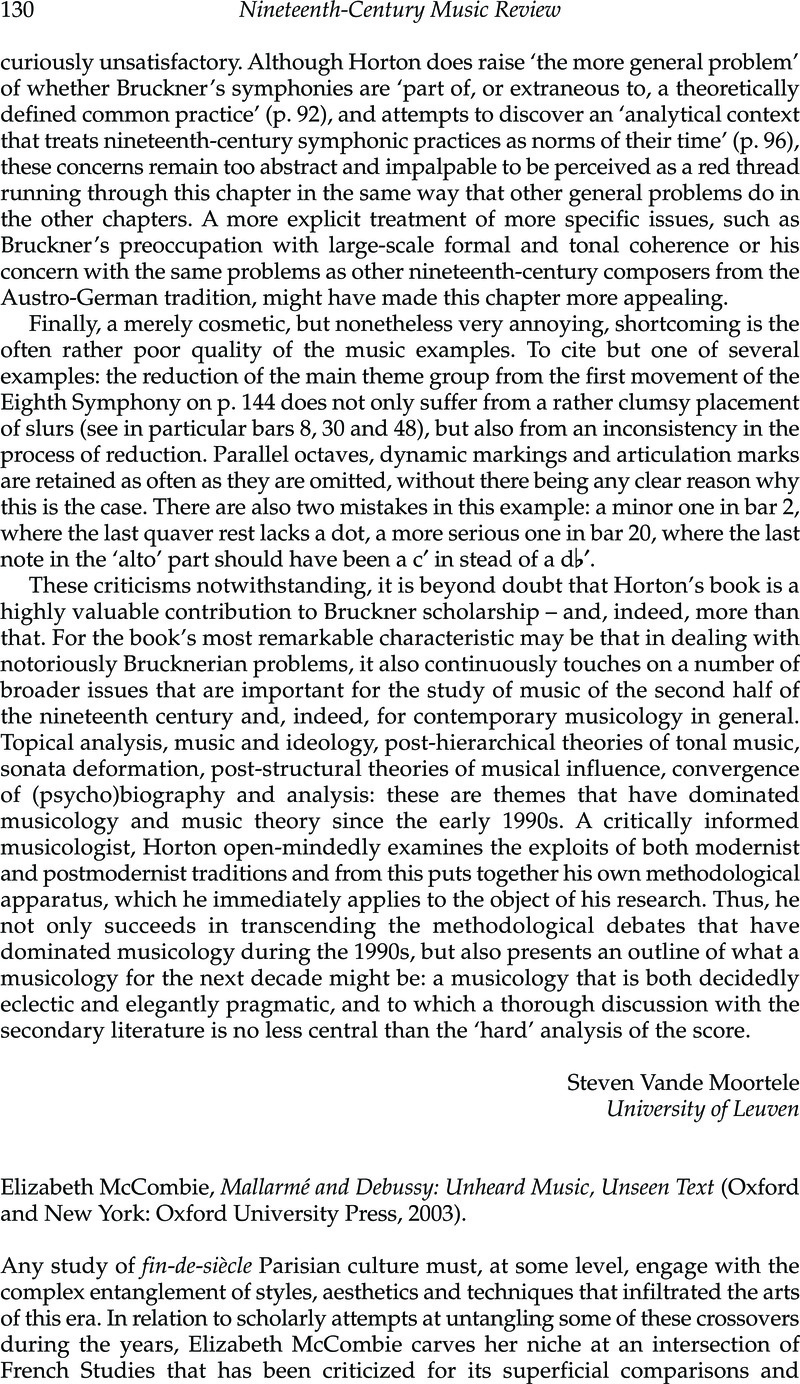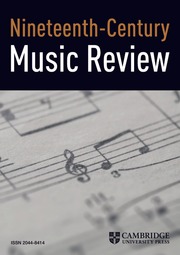No CrossRef data available.
Article contents
Elizabeth McCombie, Mallarmé and Debussy: Unheard Music, Unseen Text (Oxford and New York: Oxford University Press, 2003).
Published online by Cambridge University Press: 13 April 2011
Abstract

- Type
- Book Reviews
- Information
- Copyright
- Copyright © Cambridge University Press 2006
References
1 Finger, Anke and Rosner, Victoria, ‘Doing Feminism in Interdisciplinary Contexts’, Feminist Studies 27/2 (2001): 499CrossRefGoogle Scholar .
2 With a little more critical persuasion and scholarly grounding, McCombie could have made a valid case for her appropriations of Boulez. The following studies might have helped refine her stance: Breatnach, Mary, Boulez and Mallarmé: A Study in Poetic Influence (Brookfield, VT, 1996)Google Scholar ; Sonnenfeld, Albert, ‘Mallarme and His Musicians Webern and Boulez’, in Mallarmé in the Twentieth Century, ed. Cohn, Robert Greer (Madison, 1998)Google Scholar . Also missing here is a reference to Wheeldon's, Marianne engaging discussion of discontinuity in ‘Interpreting Discontinuity in the late works of Claude Debussy’, PhD Diss., Yale University, 1997Google Scholar .


